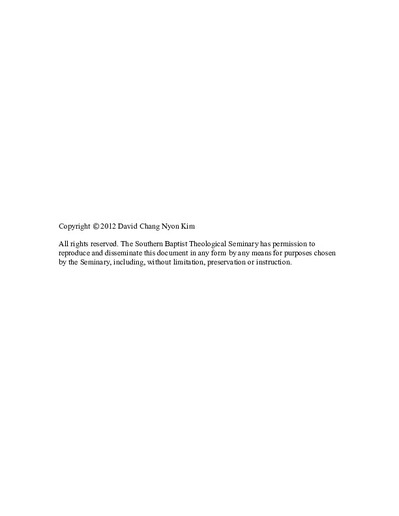| dc.description.abstract | THE ROLE OF THE SPIRIT IN THE INTERPRETATION OF THE WORD OF GOD
This dissertation examines the role of the Spirit in the interpretation of the Word of God. Chapter 1 introduces the topic and its significance. The topic is important because it has been historically neglected, because there is a lack of consensus in evangelicalism regarding this topic, and because of the claim made by the postconservative evangelicals that the Spirit reveals beyond the Word of God.
Chapter 2 begins with a historical background to the topic, and then examines the four evangelical representative views in detail. For each view, the works of two or three representatives are examined. For each theologian, a summary of his exegetical work is provided, followed by a summary of the construction of his view based on his exegesis.
Chapter 3 provides the exegetical foundation for the alternative proposal for understanding the role of the Spirit in interpretation: the Comprehensively Personal Authoritative view (CPA view), which holds that the Holy Spirit comprehensively and personally guides all aspects of the interpretation of the Word of God, in which the object of interpretation is limited to the authoritative Word of God. A directed exegesis is done on each of the four sets of passages: 1 Corinthians 2:6-16; 2 Corinthians 3:16-4:6; John 14:26, 16:13; 1 John 2:18-29.
Chapter 4 constructs the CPA view based on the exegetical work in Chapter 3.
Chapter 5 provides a critique of the four representative evangelical views, both biblically and theologically. For each view, anticipated objections from that view toward the CPA view are addressed.
Chapter 6 concludes by arguing how the CPA view is a better model in terms of its exegetical support, its internal coherence which incorporates the strengths of the other views while minimizing their weaknesses, and its ability to respond to postmodern challenges on this topic. The chapter concludes with suggestions for further exploration and a summary of the dissertation. | en_US |

